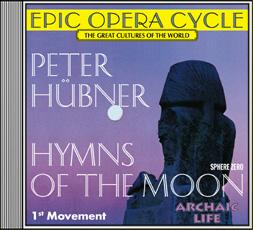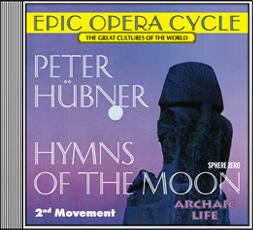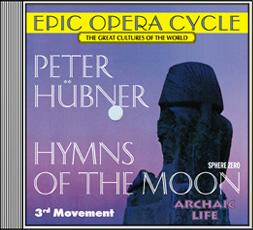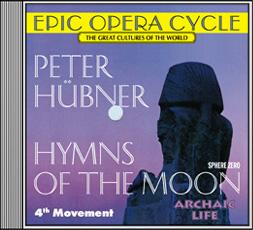| Scientific Music Medicine | |
| Home • Site Map • Research • Reports • Intern. Experts • Music Preparations • Fundamentals • Peter Hübner • Store • Contact | |

Peter Hübner • Music & Brain – Musical Perspective
The Aspect of Humanities in Music
The humanities in music concern the “spiritual element” in music and the principles of the systematic cognition and description of truths through the understanding.
The human mind is the substance through which the composer makes the music resound for the first time. And the mind, the physics of the mind, is the musical instrument through which the sound is generated.
At the same time, however, the mind is sound itself, the vibrating sound-substance in the form of the movement of waves on the surface of the mind; and the sounding composition is the changing vibration on the surface of the musical artist’s mind.
The gaining of knowledge, as we know it from the humanities is, according to the expositions in this text, an accomplishment of the self-awareness and is achieved by means of its main organ, the intellect.
The self-awareness acquires the knowledge of the meaning of the musical statement through the intellect by means of the qualities of feeling and understanding.
Moreover, the self-awareness translates its inherent knowledge into the language of music by means of the faculties of feeling and understanding.
And the expression of this music “of silence” – deep within the conscience of the musical artist – is projected by the composer’s creative self to the surface of his mind, on which his sense of hearing feeds.
On the one hand music is an “a priori science,” because on the level of the self-awareness, through the power of creativity, knowledge is systematically cognized in its seed form, and – starting from this intuitive cognition – it is projected onto the level of the mind and passed on to the surroundings as an artistic musical event.
On the other hand, however, music has also been described earlier as an empirical science, because the self, through the intellect, systematically surveys with the sense of hearing the music created on the level of the mind, and so experiences – as if from outside – the content of truth in the musical structure of the composition and ascertains its degree of musical mastership.
With reference to the basis of musical creativity, this empirical way of comprehending music could also be called “the comprehension of music through the natural sciences,” and the a priori way of comprehending music could also be called “the comprehension of music through the humanities,” because a priori music is created by the self, and empirically it is heard again by the self.
In a complete cycle of the two scientific views the information of the musical event emanates from the creating self and advances through the intellect to the level of the mind, where it is perceived by the sense of hearing and lead back again through the intellect to the hearing self.
The human mind is the substance through which the composer makes the music resound for the first time. And the mind, the physics of the mind, is the musical instrument through which the sound is generated.
At the same time, however, the mind is sound itself, the vibrating sound-substance in the form of the movement of waves on the surface of the mind; and the sounding composition is the changing vibration on the surface of the musical artist’s mind.
The gaining of knowledge, as we know it from the humanities is, according to the expositions in this text, an accomplishment of the self-awareness and is achieved by means of its main organ, the intellect.
The self-awareness acquires the knowledge of the meaning of the musical statement through the intellect by means of the qualities of feeling and understanding.
Moreover, the self-awareness translates its inherent knowledge into the language of music by means of the faculties of feeling and understanding.
And the expression of this music “of silence” – deep within the conscience of the musical artist – is projected by the composer’s creative self to the surface of his mind, on which his sense of hearing feeds.
On the one hand music is an “a priori science,” because on the level of the self-awareness, through the power of creativity, knowledge is systematically cognized in its seed form, and – starting from this intuitive cognition – it is projected onto the level of the mind and passed on to the surroundings as an artistic musical event.
On the other hand, however, music has also been described earlier as an empirical science, because the self, through the intellect, systematically surveys with the sense of hearing the music created on the level of the mind, and so experiences – as if from outside – the content of truth in the musical structure of the composition and ascertains its degree of musical mastership.
With reference to the basis of musical creativity, this empirical way of comprehending music could also be called “the comprehension of music through the natural sciences,” and the a priori way of comprehending music could also be called “the comprehension of music through the humanities,” because a priori music is created by the self, and empirically it is heard again by the self.
In a complete cycle of the two scientific views the information of the musical event emanates from the creating self and advances through the intellect to the level of the mind, where it is perceived by the sense of hearing and lead back again through the intellect to the hearing self.
 |
||
|
||
 |
||
|
||
 |
||
|
||
 |
||
|
||
With kind permission of AAR EDITION INTERNATIONAL
© 1998- SCIENTIFIC MUSIC MEDICINE | Contact
Subject to change in the interests of scientific advancement.
© 1998- SCIENTIFIC MUSIC MEDICINE | Contact
Subject to change in the interests of scientific advancement.
